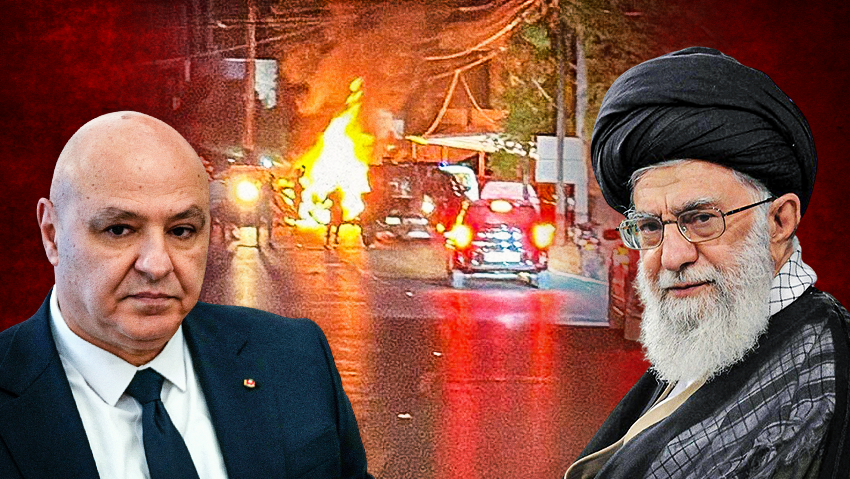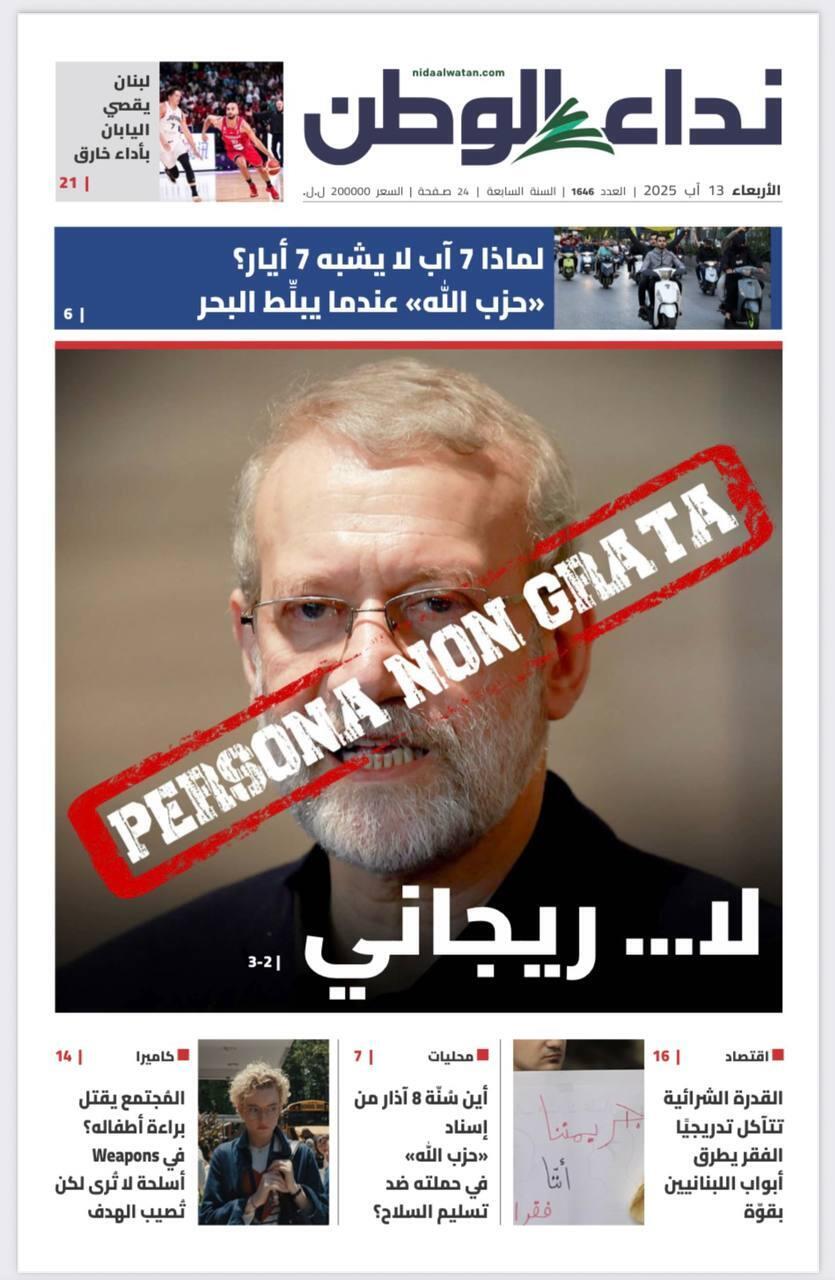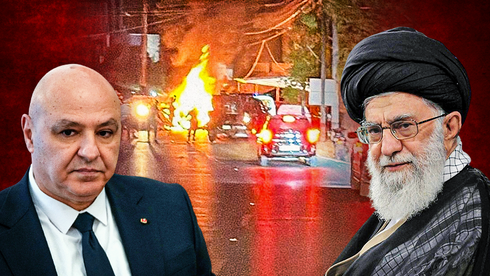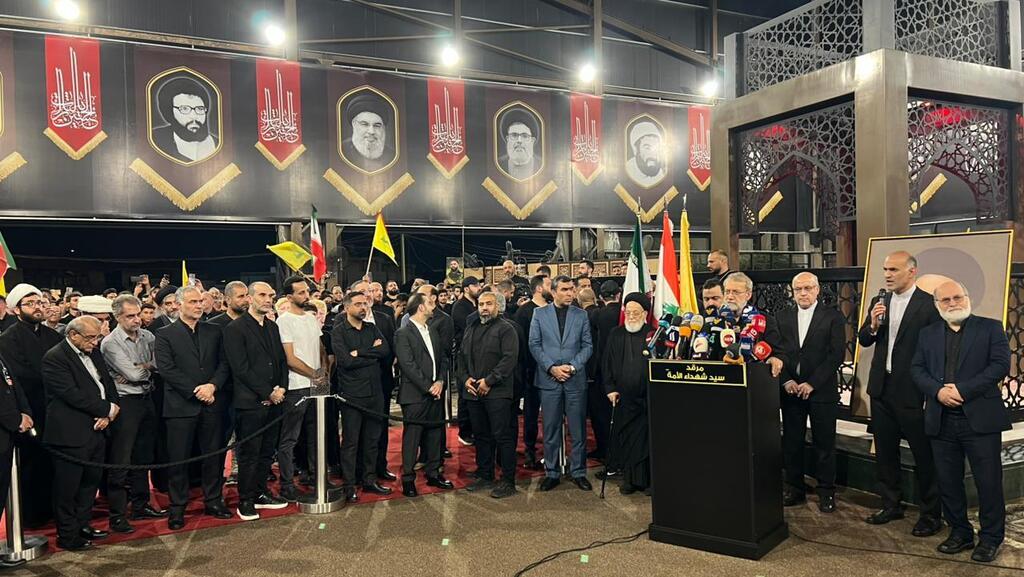A vehicle that was struck in Lebanon
IDF Northern Command chief: Evacuating the north was a ‘grave mistake’
He said the recent war had eliminated the threat of Hezbollah’s Radwan commando unit, destroyed much of the group’s infrastructure and weaponry and killed many of its fighters and commanders. “What was, will not be again,” Gordin said. “Our duty now is to preserve the secure reality we have achieved and prevent any new threat from emerging.”
3 View gallery


Lebanese President Joseph Aoun and Iranian supreme leader Ali Khamenei
(Photo: AP, Petros Karadjias/ Reuters)
Shortly after Zamir boasted of more than 240 Hezbollah operatives killed in Lebanon since a ceasefire took effect last November, reports from southern Lebanon said another Hezbollah operative had been eliminated in a targeted strike.
Iran’s Larijani meets Lebanese leaders—and meets opposition
Earlier that day, Ali Larijani, head of Iran’s Supreme National Security Council, landed in Beirut after a trip from Iraq that detoured through Turkey. Syrian authorities, according to local media, had not allowed him to enter their airspace.
Larijani met first with Lebanese President Joseph Aoun, who said Lebanon was open to cooperation with Iran “within the framework of sovereignty and friendship based on mutual respect.” Aoun cautioned that “recent language from some Iranian officials is unhelpful” and stressed that Iran’s friendship must be “with all Lebanese, not one faction.”
“Lebanon rejects interference in its internal affairs from any party,” Aoun said. “We want Lebanon to remain safe and stable for all, without discrimination. Just as Lebanon does not interfere in the internal affairs of any state, including Iran, it will not accept interference in its own.”
3 View gallery


Ali Larijani, head of Iran’s Supreme National Security Council, features on the frontpage of Lebanon’s Nidaa al-Watan daily
Larijani responded that Iran wanted to strengthen ties “on all levels” and had “no intention of disrupting” relations. He said Iran would assist Lebanon if the government requested it.
In a meeting with Parliament Speaker Nabih Berri, Larijani said foreign states “should not be issuing orders to Lebanon from abroad” and insisted, “Iran has no intention of interfering in Lebanon or any other country.” He accused the United States, not Iran, of meddling.
Prime Minister Nawaf Salam was equally firm. He told Larijani that recent Iranian statements criticizing Lebanese government decisions, and even issuing direct threats, violated diplomatic norms and the principle of mutual respect. “No Lebanese official would dare interfere in Iran’s internal affairs,” Salam said. “Lebanon will not accept any interference in its own, and expects a clear commitment from Iran to that principle.”
Salam also said Lebanon would continue to use political, diplomatic and legal means to force Israel to withdraw from all Lebanese territory and stop its attacks. Any foreign aid, he stressed, must go through official state institutions, not political parties or parallel channels.
Pressure mounts on Hezbollah
Until recently, public discussion of stripping Hezbollah of its weapons was considered taboo. But Israel’s heavy blows during the war, culminating in the killing of Nasrallah and much of the Iran-backed group’s leadership, have left it politically and militarily weakened.
The U.S. proposal, delivered by envoy Thomas Barrack in June, offers an Israeli pullback from five key border points, an end to ongoing Israeli strikes and billions in reconstruction aid in exchange for Hezbollah’s disarmament.







